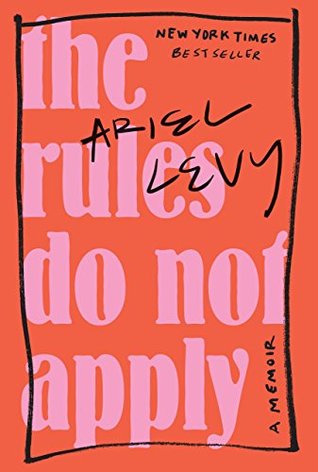More on this book
Community
Kindle Notes & Highlights
My competent self is doing the talking; my bewildered self is being addressed.
Until recently, I lived in a world where lost things could always be replaced. But it has been made overwhelmingly clear to me now that anything you think is yours by right can vanish, and what you can do about that is nothing at all.
unapologetic ethos of consumption
whose very bodies were unmistakable monuments of resistance,
What does it mean to be a woman? What are the rules? What are your options and encumbrances? I wanted to tell stories that answered, or at least asked, those questions.
“Beginning of a Great Adventure,” a Lou Reed song about impending parenthood: “A little me or he or she to fill up with my dreams,” he sings. “A way of saying life is not a loss.” As my friends, one after the next, made the journey from young woman to mother, it glared at me that I had not.
Daring to think that the rules do not apply is the mark of a visionary. It’s also a symptom of narcissism.
roaming, “out on the vast and subtle plains of mystery.”
It feels like magic but it works like carpentry.
Up until then, my regrets had been feathery things, the regrets of a privileged child.
From my mother, I learned that you can make your family feel a wonderful sense of protected indulgence by cooking them something with jolly care. I also learned that you can launch a powerful campaign of resistance by mincing garlic like a martyr.
She had the radiant decency of a sunflower.
All of us assumed we still had time for reinvention.
Women of my generation were given the lavish gift of our own agency by feminism—a belief that we could decide for ourselves how we would live, what would become of us. Writers may be particularly susceptible to this outlook, because we are accustomed to the power of authorship. (Even if you write nonfiction, you still control how the story unfolds.) Life was complying with my story. There were shadows I saw out of the corner of my eye that looked like problems waiting to become real, but you never know with shadows.
John Updike wrote that marriage is like two people locked up with one lesson to read, over and over, until the words become madness.
One day you are very young and then suddenly you are thirty-five and it is Time. You have to reproduce, or else.
I wanted what she had wanted, what we all want: everything. We want a mate who feels like family and a lover who is exotic, surprising. We want to be youthful adventurers and middle-aged mothers. We want intimacy and autonomy, safety and stimulation, reassurance and novelty, coziness and thrills. But we can’t have it all.
I would feel the searing truth of how lucky I was to live with this person, to have this ally in life.
I had managed to solve the Jane Austen problems that women have been confronting for centuries—securing a provider for your children, finding a mate to pass the time with, and creating a convivial home—in an entirely unconventional way.
The only thing that’s mysterious is how you managed to think it mysterious.
Grief is another world. Like the carnal world, it is one where reason doesn’t work.
The wide-open blue forever had spoken: You control nothing.
When I was young. When I had no idea that all over the city, all over the world, there were people walking around sealed in their own universes of loss, independent solar systems of suffering closed off from the regular world, where things make sense and language is all you need to tell the truth.
GRIEF IS A WORLD you walk through skinned, unshelled.
Life had eroded her body, her restlessness, her expectations, and left her somehow gentle and content.
There are jewel-like moments when I experience gratitude.
“The thing about denial,” he says, “is that it’s like sleeping: You don’t know you’re doing it when you’re doing it.”
“Just for today, I will adjust myself and not try to manipulate the situation.”
We marvel at the unexpected ways people find each other.
I asked if she’d ever wanted children. She told me, “Everybody doesn’t get everything.” It sounded depressing to me at the time, a statement of defeat. Now admitting it seems like the obvious and essential work of growing up. Everybody doesn’t get everything: as natural and unavoidable as mortality.
Something is happening. Something very small and very new is sending up a shoot inside of me. It’s a sprout of surrender that feels somehow indistinguishable from safety. It is not emanating from a plan. For the first time in my life, I have no plan.
For Lucy I feel more tenderness and intensity than I can fit inside my chest. She feels like kin—like blood. I don’t want to be without her in this life. But our marriage is over. Slowly, we will become something else to each other.
As everything else has fallen apart, what has stayed intact is something I always had, the thing that made me a writer: curiosity. Hope.


